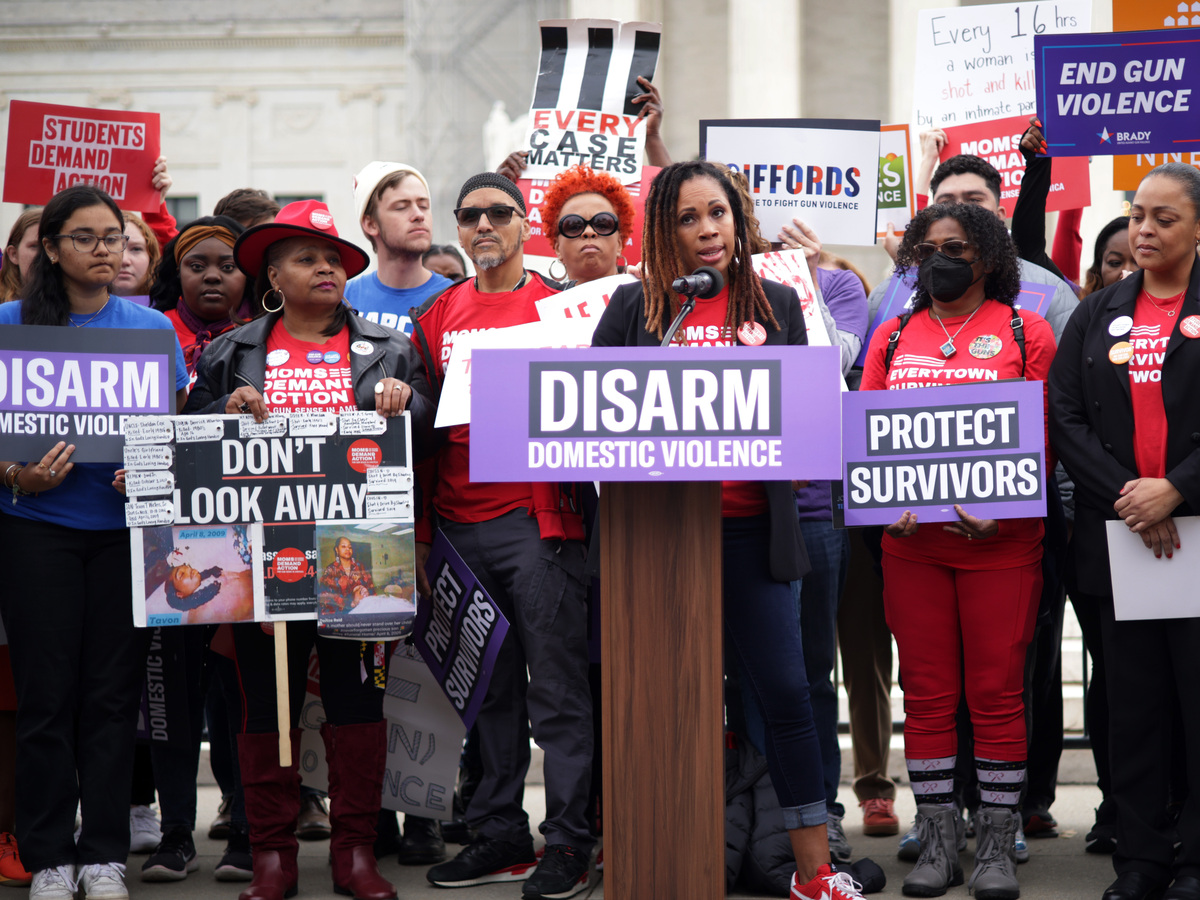
Angela Ferrell-Zabala of Moms Demand Action spoke outside of the U.S. Supreme Court at a gun-control rally on Tuesday, as the Court was hearing arguments for a case about whether domestic violence offenders are protected by the Second Amendment to own guns. Alex Wong/Getty Images hide caption

Angela Ferrell-Zabala of Moms Demand Action spoke outside of the U.S. Supreme Court at a gun-control rally on Tuesday, as the Court was hearing arguments for a case about whether domestic violence offenders are protected by the Second Amendment to own guns.
Alex Wong/Getty ImagesAt the Supreme Court on Tuesday, justices seemed inclined to uphold a federal law that bans anyone covered by a domestic violence court order from having a gun.
But if they do that, the decision will likely be a narrow one, leaving many questions about the future of gun regulations unanswered.
NPR legal affairs correspondent Nina Totenberg reports.
A note to listeners, there is a graphic description of violence in this episode.
Email us at
This episode was produced by Jason Fuller, Lexie Schapitl and Gabriel J. Sánchez. It was edited by Adam Raney and Krishnadev Calamur. Our executive producer is Sami Yenigun.

 Live Radio
Live Radio